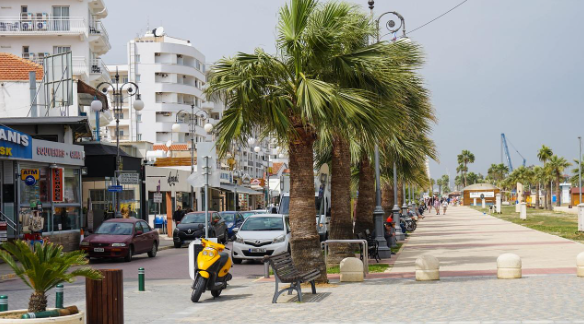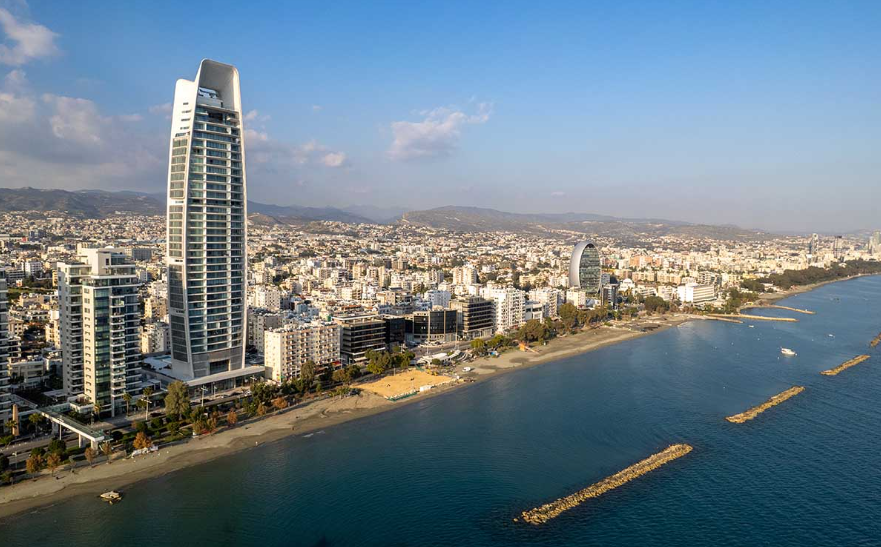- Content
Buying real estate in Cyprus has long attracted the attention of foreign investors and individuals seeking not only a profitable investment but also the opportunity to obtain residency or simply enjoy comfortable living on the Mediterranean island. However, even with the apparent transparency of the process, buyers encounter a multitude of nuances: legal restrictions, complexities in the registration system, peculiarities of taxation, as well as certain market risks and dispute resolution practices.
Legal basis for the acquisition of real estate in Cyprus by foreigners
1. Basic acts and sources of law
Property ownership in Cyprus is regulated by a number of legislative acts, the main ones being:
- The Immovable Property (Tenure, Registration and Valuation) Law, Cap.224 — a key act governing issues of ownership, registration, and encumbrances.
- The Acquisition of Immovable Property (Aliens) Law, Cap.109 — establishes restrictions and procedures for the acquisition of real estate by foreign citizens (aliens).
- The Cyprus Land Registry — a centralized state register that guarantees the transparency and legality of real estate transactions.
2. Restrictions for non-residents and EU residents
Cyprus legislation clearly distinguishes between the rights of EU citizens and third-country nationals:
- EU citizens are entitled to purchase an unlimited number of properties of any type (residential/commercial, land, apartments) without any special permits.
- Third-country nationals (non-EU citizens) may only purchase one residential property (apartment, house, townhouse) or a plot of land up to 4,014 m² in size. This requires obtaining a special permit from the Council of Ministers, which in practice is a formal procedure but can take 2-6 months.
This restriction is explained by Cyprus’ policy of maintaining a balance between investment, national interests, and housing affordability for local residents.
3. Registration system and property rights
All properties in Cyprus have a unique cadastral number and are registered with the Land Registry. To transfer ownership, the purchase agreement must be registered with this authority within 60 days of signing. Only after this procedure does the buyer acquire indisputable ownership rights, and the property becomes legally protected from double sales or third-party claims.

Step-by-step procedure for purchasing real estate: legal practice
1. Due diligence и правовая проверка
The first and most important stage is the legal review of the property (due diligence), which must be carried out by an experienced lawyer who is independent of the seller. The following is checked:
- Clean title deed, absence of liens, seizures, and legal disputes.
- Legality of previous transactions involving this property.
- Compliance of the building with urban planning and operational standards (especially relevant for new buildings).
- Status of the land plot: availability of all permits, agreement on boundaries, possibility of connecting to utilities.
Practice shows that ignoring the due diligence stage leads to litigation: in Cyprus, there have been cases of double sales, seizures, and confiscation of property in favor of the seller’s creditors.

2. Signing a preliminary agreement and paying a deposit
The purchase process usually begins with a reservation: a deposit (ranging from €2,000 to €10,000) is paid for a period of 2-4 weeks to ensure that the property is taken off the market. Then a preliminary agreement is drawn up, setting out the main terms of the transaction, the price, the transfer dates, and the obligations of the parties.
3. Main sale and purchase agreement
The sale and purchase agreement contains:
- Full details of the parties, description of the property, and price.
- A payment schedule (often divided into 2-3 stages).
- The terms of transfer of the property and return of the deposit.
- Liability for hidden defects, developer’s guarantees (if it is a new building).
Legal practice: the contract is signed in Greek and English, which ensures transparency and minimizes misunderstandings.
4. Registration of the contract in the land registry
Within 60 days, the contract is submitted to the District Land Office. Registration protects the buyer: until the transfer of ownership, the property cannot be sold to another person. This stage is mandatory for third-country nationals.
5. Obtaining permission from the Council of Ministers
For citizens of non-EU countries, an application must be submitted, accompanied by:
- A copy of the contract.
- Passport details.
- Proof of income and the legal origin of funds (required by Cyprus AML/CTF legislation, which complies with EU and FATF standards).
- Proof of good character (no criminal record).
The application is reviewed by a panel. In practice, rejection is extremely rare and may be related to a threat to national security or the applicant having a negative reputation.
6. Final settlement and transfer of ownership
The final settlement takes place either on the day the contract is signed or after approval by the Council of Ministers. After full settlement, a Transfer of Title Deed is drawn up — the title is issued in the name of the new owner in the cadastre, with the payment of state fees and taxes. From this moment on, the property rights are protected by the state.

Taxes and mandatory fees when purchasing real estate in Cyprus
1. Stamp Duty
Payable at the time of signing the main contract:
- 0.15% of the amount up to €170,860.
- 0.20% on the remaining amount.
2. Transfer Fee
In 2024–2025, a progressive scale applies:
- 3% of the value up to €85,000.
- 5% from €85,001 to €170,000.
- 8% above €170,000.
If the property is registered to several persons, the amount is divided proportionally.
3. VAT
- New buildings are subject to the standard VAT rate of 19%.
- When purchasing your first home, you can get a reduced rate of 5% (provided that the property is used for permanent residence, the area does not exceed 200 m², and the buyer does not own other properties in the country).
- The secondary market is exempt from VAT but is subject to a transfer of ownership tax.
4. Municipal fees
- These are paid annually (usually €85–€200 per year).
- They include garbage collection, infrastructure maintenance, etc.
5. Abolition of property tax
Until 2017, Cyprus levied an annual property tax. Today, it has been abolished, making property ownership particularly attractive for long-term investors.

Cyprus real estate market: statistics, dynamics, features
1. Market trends for 2024–2025
According to data from the Department of Lands and Surveys, the highest demand among foreign buyers is observed in the following cities:
- Paphos — traditionally leads in the number of transactions with citizens of the UK, Israel, and Russia.
- Limassol — the most expensive and attractive region for investment, attracting investors from the Middle East, the EU, and the CIS.
- Larnaca — a center for new construction, popular with buyers from Europe and Asia.
In the first quarter of 2025, foreigners accounted for about 43% of all transactions in the market, demonstrating stable interest in Cypriot real estate as an investment asset.
2. Average prices and trends
- The average price of apartments in Limassol is €4,200 per m², in Paphos €2,900, and in Larnaca €2,600.
- Prices have risen by an average of 9–11% over the past two years, especially in the new projects segment.
- High demand continues for properties costing up to €350,000 — this is the optimal segment for obtaining permanent residence through the investment program.
Program for obtaining permanent residence through investment in real estate
The state program for accelerated obtaining of permanent residence (Permanent Residency Permit, category F6.2) is one of the most popular tools:
- The minimum investment amount is €300,000 + VAT.
- You must confirm an income of €30,000 per year, plus €5,000 for each family member.
- The property must be new and purchased from a developer.
The permanent residency application process takes 2–4 months and applies to spouses and children under 25 years of age. Starting in 2023, the program will be tightened in terms of money laundering (AML) controls, so all payments must be as transparent as possible.
Problem areas and practical risks: northern Cyprus, secondary market
The real estate market in the occupied territory of northern Cyprus deserves special attention:
- Properties built on disputed land are legally subject to the risk of ownership disputes.
- The European Court of Human Rights has repeatedly ruled in favor of former Greek Cypriot owners, leading to lawsuits and the risk of investment losses.
- In recent years, there has been an increase in cases of fraud, where properties are sold to several buyers at once, or the developer goes bankrupt before the title is transferred.
For the secondary market in the south of the country, the main risk is associated with outdated infrastructure and hidden encumbrances that are not always visible without thorough inspection.
Practical tips and recommendations
- Be sure to work only with licensed real estate agents and independent lawyers. Cyprus has a register of certified agents.
- Do not transfer money directly to the seller’s account without depositing it in an escrow account with a lawyer.
- Avoid deals involving properties that do not have a title deed. The construction company must provide a document confirming the right to sell.
- Request full details of all payments and taxes — most problems arise from the concealment of the actual price of the transaction.
Current changes in legislation (2023–2025)
- Procedures for verifying the origin of funds (KYC, AML) have been tightened.
- Mandatory reporting has been introduced for all transactions exceeding €10,000.
- The quota for issuing permits for the purchase of properties has been reduced for third-country nationals (the government is regulating the influx of mass investors to prevent price increases).
Investment potential, legal protection, and market practices
Buying real estate in Cyprus is not only a way to secure personal accommodation, but also a strategic investment tool. However, a successful transaction is impossible without in-depth knowledge of legislation, market conditions, and the specifics of law enforcement practices. It should be remembered that the rights of foreign investors are protected if all requirements are met and transactions are supervised by state authorities. In the modern Cypriot market, the key competitive advantage is not only the price of the property, but also its legal “cleanliness,” the transparency of all stages of the transaction, and the possibility of integration into the European legal field.
Cyprus is one of the few countries in Europe where real estate still combines investment attractiveness, a high level of legal protection, and flexible programs for foreign buyers. Careful preparation, competent legal support, and consideration of all legislative nuances minimize any risks and turn the purchase into a long-term strategy for preserving and increasing capital.
The process of buying property in Cyprus usually includes signing a reservation agreement, conducting legal due diligence, registering the sales contract with the Land Registry, and transferring title deeds after payment of taxes and fees







